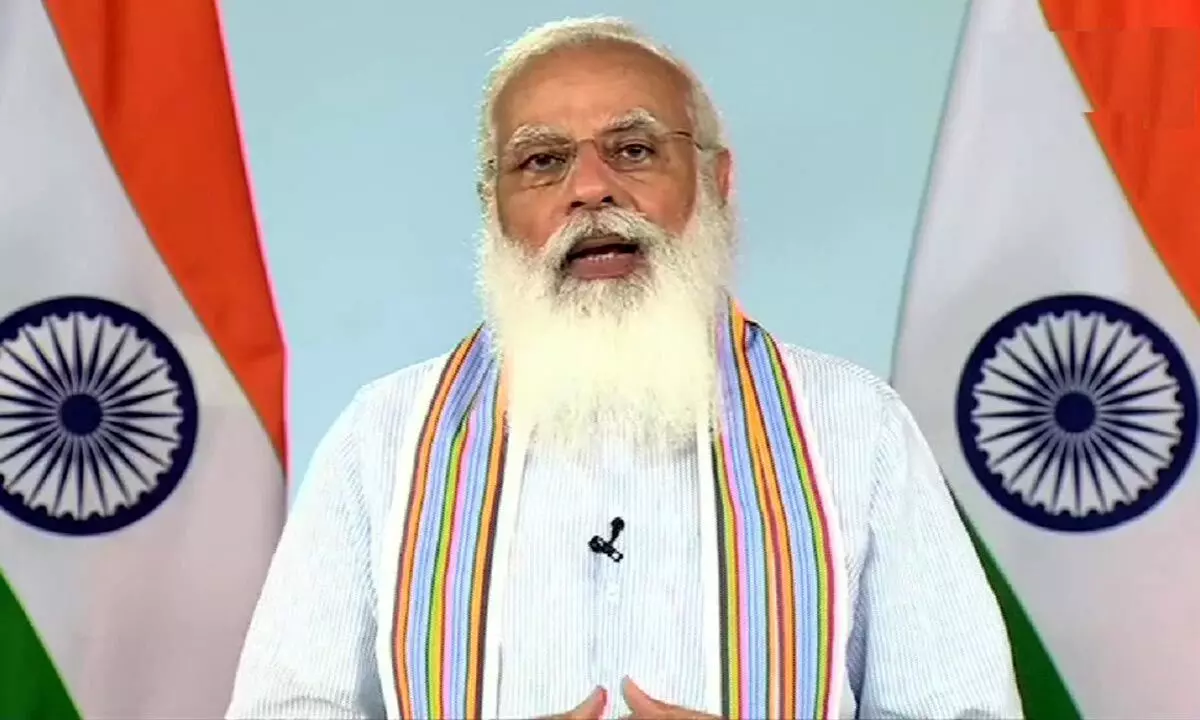PM makes strong case for investment in India
But, there is still a lot of regulation and compliance burden. At the Central level, a lot has been streamlined, but a great deal of work remains to be done in states
image for illustrative purpose

Prime Minister Narendra Modi, while addressing the inaugural function of Invest Karnataka 2022, made a strong case for global investment in not just the southern state, but in the entire country on Wednesday.
At the Global Investors Meet via video conferencing, he rightly said, "these are uncertain times. Still most of the nations are convinced about the fundamentals of the Indian economy. In this period of fragmentation, India is moving with the world and giving emphasis on working with the world. India could assure the world about the supply of medicines and vaccines in the period of the disrupted supply chain."
This was not an empty boast, as India proved its mettle during the successive waves of Covid-19 by supplying vaccines, medicines, and PPE kits to countries all over the world.
"Building a New India is possible only with bold reforms, massive infrastructure and the best of talent. Today bold reforms are carried out in every sphere of the government," Modi said according to an official press release. He went on to mention GST, the Insolvency and Bankruptcy Code (IBC), UPI, and abolition of 1,500 outdated laws and 40,000 unnecessary compliances.
He also listed out other steps like decriminalization of many company law provisions, faceless assessment, new avenues for foreign direct investment, liberalization of drone rules, and openings in the geospatial, space and defence sectors.
While the number of operational airports has doubled in the last eight years, Metro has expanded in more than 20 cities, the Prime Minister said. Highlighting the aim of the PM-Gati Shakti National Master Plan, he remarked that it is aimed at integrated infrastructure development.
Drawing an analogy between the vision of India with that of an investor, the Prime Minister pointed out that as an investor moves forward with a medium and long-term vision, India also has an inspirational long-term vision. He gave examples of nano urea, hydrogen energy, green ammonia, coal gasification and space satellites.
The Prime Minister concluded his address by stating that India has set a target of becoming a developed nation by 2047 and for it is very important that the investment and India's inspiration should come together as the development of inclusive, democratic and strong India will accelerate the development of the world. "Investing in India means investing in inclusion, investing in democracy, investing for the world, and investing for a better, cleaner and a safer planet."
This is a poignant appeal, especially to those global investors who have shown considerable faith in China in the past. They can be convinced to invest in our country, but for this the government must do more than what it is already doing.
First, there is still a lot of regulation and compliance burden. At the Central level, a lot has been streamlined, but a great deal of work remains to be done in states. The Modi government must direct the state governments under the Bharatiya Janata Party to expedite reforms at their ends. It should also engage with non-BJP regimes and nudge them to remove supply-side constraints.
Second, the Centre must ensure that there are no abrupt policy changes. The move to electrification in the transportation sector, for instance, could have been moderated in the recent past. A more nuanced approach to policy change is needed.
Third, the Centre should rein in the agencies like the Enforcement Directorate and the Central Bureau of Investigation. Businesspersons dread the agencies; many of them are becoming NRIs or even leaving the country. The climate of fear must go.
Fourth, global investors should be able to see themselves that investing in India is actually "investing in democracy." At present, only the most Indophile investors can say that. The reasons are obvious: free speech is severely curtailed, and now there is also the threat of cancel culture; India figures very low in the Press Freedom Index; civil liberties are infringed upon; and long is the list of woes tormenting the people of India. In a nutshell, PM Modi must ensure that investing in India becomes investing in democracy.

